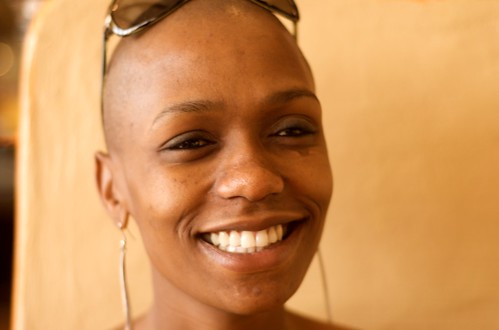Three Notes on World AIDS Day
by David Sasaki on December 1, 2008 at 3:37 am
As I wrote a couple weeks ago in an email to the Rising Voices mailing list, I have mixed feelings about World AIDS Day. On the one hand, it can help create the illusion that we only need to think about AIDS one day out of the year and then somehow everything will get better. On the other hand, December 1st can be an attention-grabbing starting point for sustained campaigns that advocate for the rights of HIV-positive individuals, like the AIDS Rights Congo project is doing; spread preventive education with creativity, like the REPACTED project in Kenya does on a regular basis; and amplify the voices of marginalized communities, like the Drop-In Center in Ukraine.
Here on the South Africa Bloggers Roadshow, which is meant, in the words of its sponsors, to “tell the story of South Africa,” there is no mention of HIV or AIDS at all. (Nor violence against women, for that matter.) Graeme Addison, Durban’s Dagga King and the organizer of our itinerary, apologized on the first day for the exclusion. So, let me take a few minutes to mention three relevant notes.
To Test or Not to Test: Thandanani’s Question
First, I have uploaded a video which features excerpts of a really fascinating conversation I had last Friday with Thandanani, Sinempilo, and Zwelithini. Much of the conversation was Thandanani explaining why he didn’t want to know his HIV status and Sinempilo and Zwelithini trying to convince him that he should get tested. But there are other fascinating parts as well. I learned that in South Africa low income mothers are given 200 rand a month when they become pregnant. The three felt that this policy contributes to the spread of HIV and AIDS because it encourages people to have unprotected sex as a way of generating income. All three also felt that if Black South Africans go back to their indigenous cultures rather than trying to emulate the West that HIV transmission would be reduced. For one, they’d be spending less time going out to clubs, drinking, and hooking up, but also there are parts of Zulu culture like the traditional virginity test which encourage abstinence. Enjoy the conversation:
Project Masiluleke
Second, I must take off my hat to Miss Zinny Thabethe, who I first met at Pop!Tech and then was able to see again last week in Pietermaritzburg. Zinny is used to a good deal of attention. In fact, if you open up Southern Africa’s edition of Cosmopolitan Magazine there she’ll be, one of South Africa’s “30 fun and fearless women.” You can also see her speaking at PopTech and featured in National Geographic magazine.

Zinny’s newest initiative is Project Masiluleke. As I wrote last month, PopTech is transforming from a mere annual conference to a constant social change incubator. In addition to its Social Innovation Fellows program, the PopTech group will also select inspiring projects which are ripe with potential and put them in “the accelerator,” which essentially means introducing them to all the right people in order to make the project a success.
Project Masiluleke is the guinea pig project of the Accelerator. There are two major parts to the project which will officially launch sometime this spring. In South Africa most mobile service providers offer a feature in which you can send someone a free text message asking them to call you if you are out of airtime. The message itself is only around 30 characters, which leaves more than 100 more characters of space. Rather than filling that space with advertising, as would be expected, South Africa’s MTN network will append public service messages asking its subscribers to get tested and offering counseling resources. The second major part of the project is an at-home HIV testing kit designed by New York City-based Frog Design. We saw a demo of the kit at PopTech and the thinking that went behind it is extremely impressive.
Blogging Positively
On Wednesday Serina and Daudi will be co-hosting a live chat about how citizen media can be used to supplement and improve the mainstream media’s coverage of the AIDS epidemic. Details on how to participate in the chat are on Serina’s blog. Also make sure to check out Juhie’s post on Global Voices about World AIDS Day, our special topic coverage page, and the Global Voices Google Map of HIV-positive bloggers around the world that Juhie put together with Solana.


